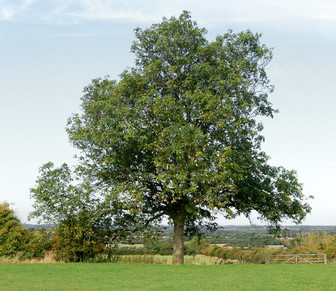Home
Focus Areas
About Us
Women, children, and adolescents in low-income and middle-income countries are some of the most vulnerable to the effects of climate change, and they're going to bear the worst of it, even if they don't contribute as much to global greenhouse gas emissions as other people, according to a new study.
The study, published in the British Medical Journal, argues that women's, children's, and adolescents' healthor WCAHis "currently not mainstreamed in climate policies and financing," and that it needs to be better funded, especially in countries that have the least greenhouse gas emissions, the New York Times reports.
The study found that the effects of climate change are expected to worsen the health of women, children, and adolescents in low-income and middle-income countries, as well as increase their risk of displacement and migration.
The study's lead author, Blanca Anton of the London School of Hygiene and Tropical Medicine, tells the Times that climate change is already having an impact on the health of women, children, and adolescents in low-income and middle-income countries, and that it's going to get worse.
Anton says that in countries that have the least greenhouse gas emissions, women, children, and adolescents Read the Entire Article
Selected Grant News Headlines
A customized collection of grant news from foundations and the federal government from around the Web.
CitiesAlive 2024 will take place at various locations in Toronto on November 6 9th.Learn from the experts over two full days covering the latest designs, research, policy, and system...more
The ETS Innovation Fund is one of the world's most extensive funding programmes for demonstrating innovative low carbon technologies.Since 2020, the Innovation Fund (grant) has provided around 2.5B ...more
"I believe this program places Huntington Local Schools on the cutting edge of what 21st-century schools should be." So says Pete Ruby, superintendent of Ohio's Huntington Local Middle School,...more
If you're a first-year student at the University of North Carolina at Chapel Hill, you might want to stop by the school's "Find Your People" event, which is designed "to help first-year students in...more
A major bank in India is looking for a senior analyst to help it grow its climate finance business, the BBC reports. The Global Innovation Lab for Climate Finance is looking for a senior analyst...more
Denmark's government and development fund are ramping up efforts to drum up private capital for green initiatives, with a particular focus on Asia, the Guardian reports. Denmark's World Climate...more
A Massachusetts company has become the first to take part in the Department of Energy's Cold Climate Challenge, which aims to reduce greenhouse-gas emissions by 80% by 2050. Bosch's IDS Ultra...more
Researchers at the University of Hawaii have received a $2 million grant to develop a process that could drastically reduce the environmental impact of wastewater treatment, the Honolulu...more
Global leaders are meeting in Baku, Azerbaijan, this week for the 29th Conference of the Parties to the United Nations Framework Convention on Climate Change, and the New York Times takes a look at...more
Oklahoma State University-Oklahoma City is offering a unique opportunity for individuals who have faced significant life challenges to pursue higher education.The Center for Social Innovation (CFSI)...more
Environment News from...
Moore Foundation
Bloomberg Philanthropies
Rockefeller Foundation
Social Entrepreneurship
Spotlight
Colombian Social Entrepreneur Hopes to Shake and Change the World

Young at 24, Juan David Aristizabal Ospina is a social entrepreneur who founded Buena Nota, a platform that accentuates social entrepreneurs and citizens in Colombia making  positive changes and raising awareness about social problems that need to be addressed.









